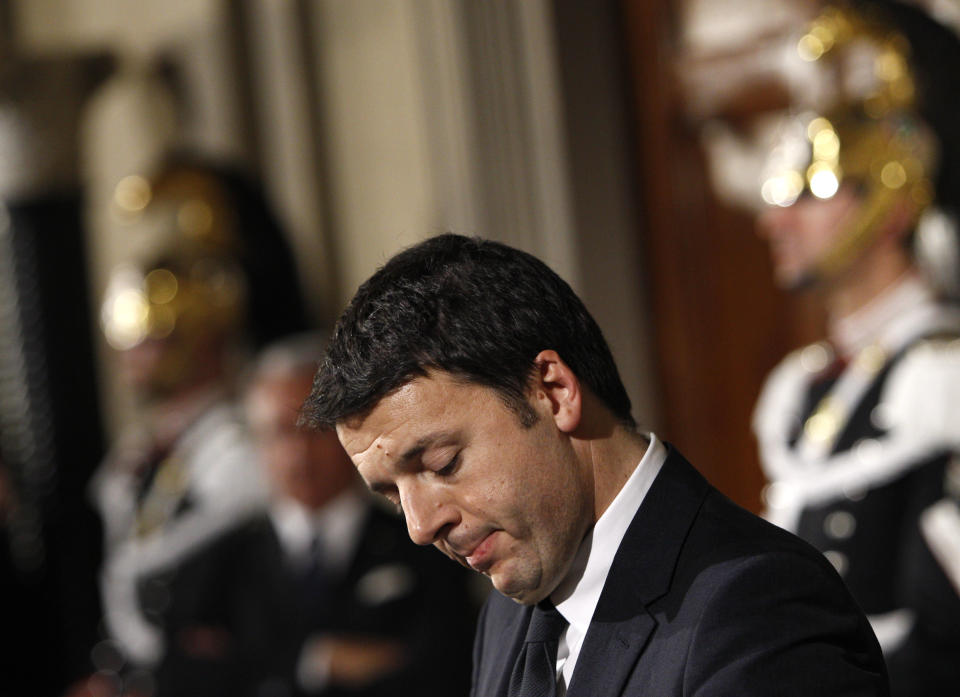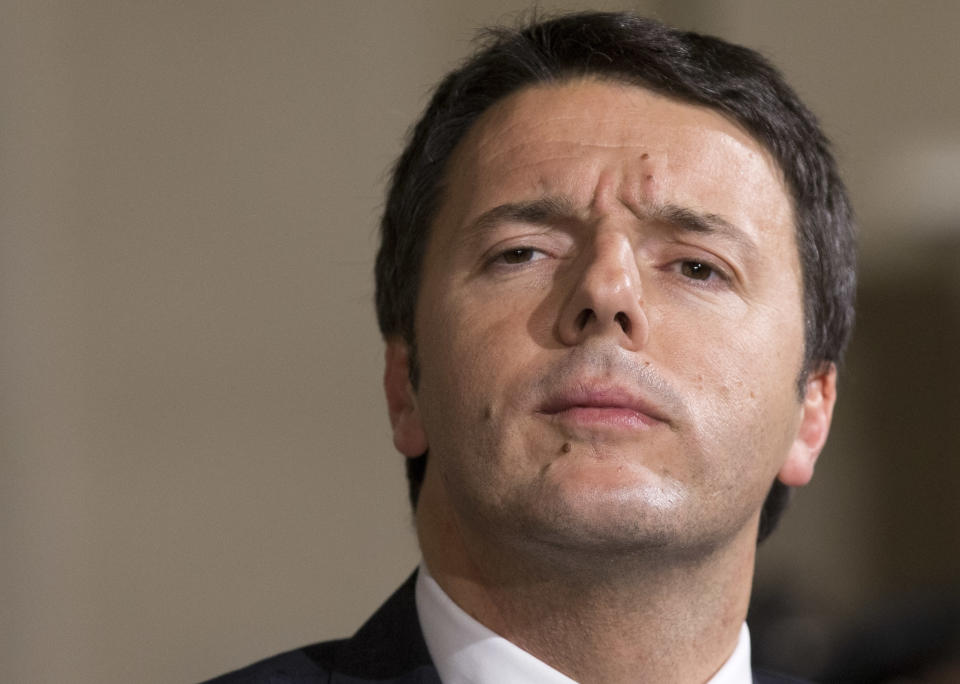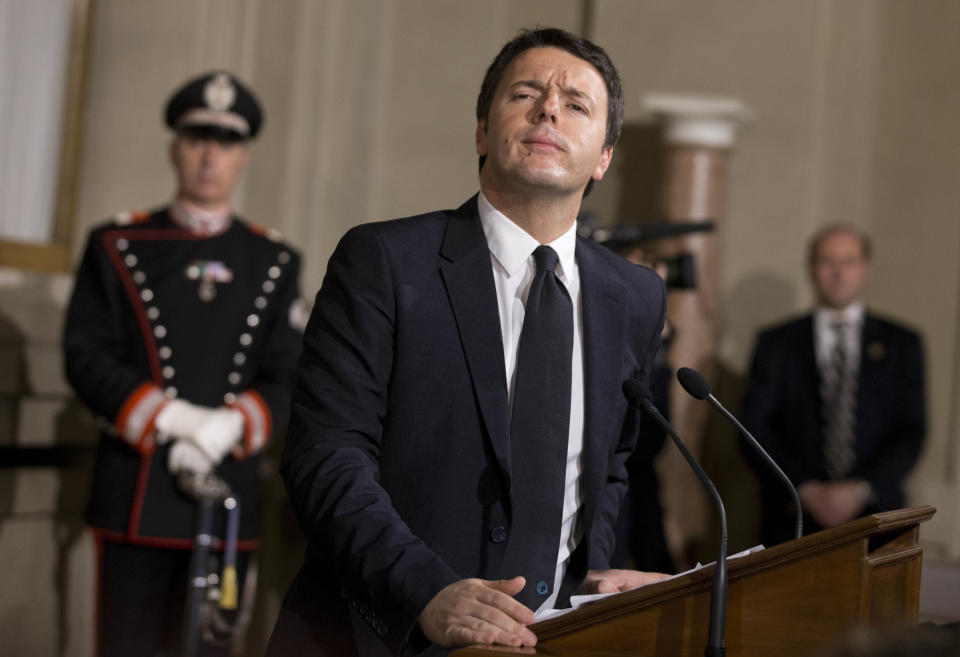Renzi forms Italy's latest coalition
ROME (AP) — Democratic Party leader Matteo Renzi formed Italy's new government on Friday and promised that his coalition will give the economically-stagnant country "hope."
At 39, Renzi will become Italy's youngest premier when he, and his Cabinet, are sworn in Saturday. He will also be the third straight premier to come to office without being elected — the last premier who stood for election was scandal-tainted Silvio Berlusconi in 2008.
Renzi had been serving as Florence mayor when he engineered a power grab last week to effectively force fellow Democrat Enrico Letta to step down after 10 months at the helm of a fragile, often-squabbling coalition.
Renzi is depending on the same coalition partners. As well as his center-left Democratic Party, which will remain the biggest party, his government is propped up by two smaller groupings — supporters of former premier Mario Monti and former loyalists of center-right leader Berlusconi.
Renzi told reporters he's aiming to give a "strong message" to the international community that his government will enact electoral and economic reforms quickly.
He vowed to keep his government alive until the full parliamentary term expires in 2014.
"We aim tomorrow morning to immediately do the things that need to get done," Renzi said.
Renzi and Berlusconi, kept out of office by a tax fraud conviction, recently cut a deal to work swiftly for parliamentary passage of electoral reforms aimed at finally giving Italy a clear winner at the ballot box. Should Renzi achieve the electoral reform in the next few weeks, both Democrats and Berlusconi's forces may push for early elections.
President Giorgio Napolitano, who tapped Renzi for the job, urged swift action.
"We cannot afford the luxury of losing this occasion," Napolitano said.
Renzi's economy minister will be Pier Carlo Padoan, chief economist for the Organization for Economic Cooperation and Development.
The new premier's heavily political Cabinet is a further shift away from the "technocrat" cabinet Monti led when tapped by Napolitano in late 2011. Then international markets lost faith in Berlusconi's ability to push through the austerity and reform measures many thought were necessary for Italy to get a grip on its public finances and keep the country in the euro-currency bloc.
Letta was thrust aside by the brash, ambitious Renzi just as Italy began to show signs of growth and bond market investors appeared less concerned over the country's ability to repay its debts.
___
Follow Frances D'Emilio on twitter at www.twitter.com/fdemilio




